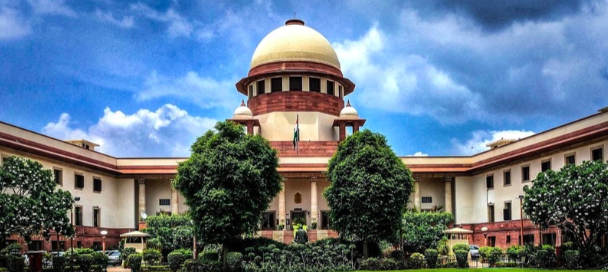The Supreme Court, in response to a writ petition, issued a notice on October 10 to address concerns regarding the regulation of advertisements by corporate hospitals. The petitioner argued that, unlike private medical practitioners who are prohibited from advertising, there are no such restrictions in place for corporate hospitals.
Justices Sanjay Kishan Kaul and Sudhanshu Dhulia, forming the bench, directed the notice to the National Medical Commission, the Union of India, and the Ethics and Medical Registration Board. The Public Interest Litigation was filed by Narayan Aniruddha Malpani, seeking comprehensive guidelines for corporate hospitals to ensure ethical advertising, preventing the indirect violation of statutory regulations by doctors associated with these hospitals.
The petitioner highlighted the issue of unchecked advertising by corporate hospitals and venture capital-funded healthcare start-ups, creating an arbitrary distinction between medical professionals. This, according to the petitioner, infringes upon patients’ right to make informed healthcare choices, manipulating and misleading them, thereby violating Articles 14, 19, and 21 of the Indian Constitution.
The petitioner argued that such unethical advertising by corporate hospitals contradicts the Indian Medical Council (Professional Conduct, Etiquette, and Ethics) Regulations of 2002, which prohibit solicitation of work by medical practitioners. Notably, corporate hospitals fall under the Clinical Establishments Act (Registration and Regulation) Act, 2010, rather than the NMC Act, 2019, resulting in a situation where the National Medical Commission has limited authority over their advertising strategies.
The petitioner contended that these intra-class distinctions violate fundamental rights guaranteed by the Constitution and referenced the Objects and Reasons of the NMC Act, 2019, which aims to promote equitable and universal healthcare. The petitioner argued that providing unfair advantages to corporate hospitals, making healthcare unaffordable for most citizens, goes against the objectives of the Act.
Emphasizing that corporate hospitals cannot use freedom of speech to violate the Ethics Regulations of 2002, the petitioner stressed that the right to advertise is subject to reasonable restrictions. Excessive or misleading healthcare advertising can lead to uninformed patient decisions, eroding the trust between doctors and patients.
Referring to the landmark case of Tata Press Limited v. Mahanagar Telephone-Nigam, the petitioner asserted that, while commercial advertisements are protected under freedom of speech, they are subject to restrictions. Unethical advertisements by corporate hospitals, according to the petitioner, fall under reasonable restrictions on commercial advertisements as per Article 19(2) of the Constitution.
The petitioner urged the establishment of clear guidelines outlining corporate hospital accountability under the Clinical Establishments Act, 2010, in cases of Ethics Regulations violations. Additionally, there is a call to harmonize the NMC Act, 2019, with the Clinical Establishments Act, ensuring that physicians associated with corporate hospitals do not benefit directly or indirectly through existing loopholes.
Case Title: Narayan Aniruddha Malpani v. National Medical Commission And Ors, Diary No. 34769-2023 PIL-W
To register for our next masterclass please click here https://linktr.ee/docpreneur




